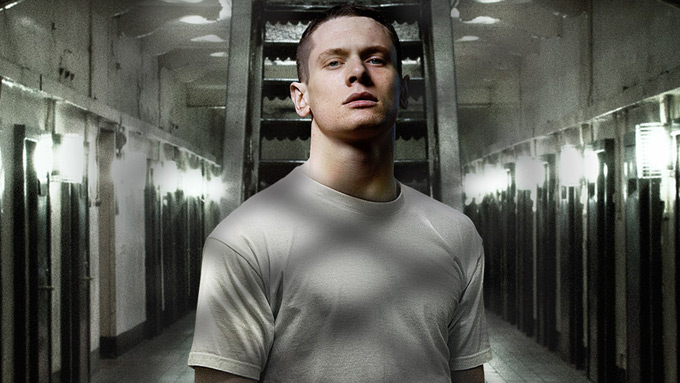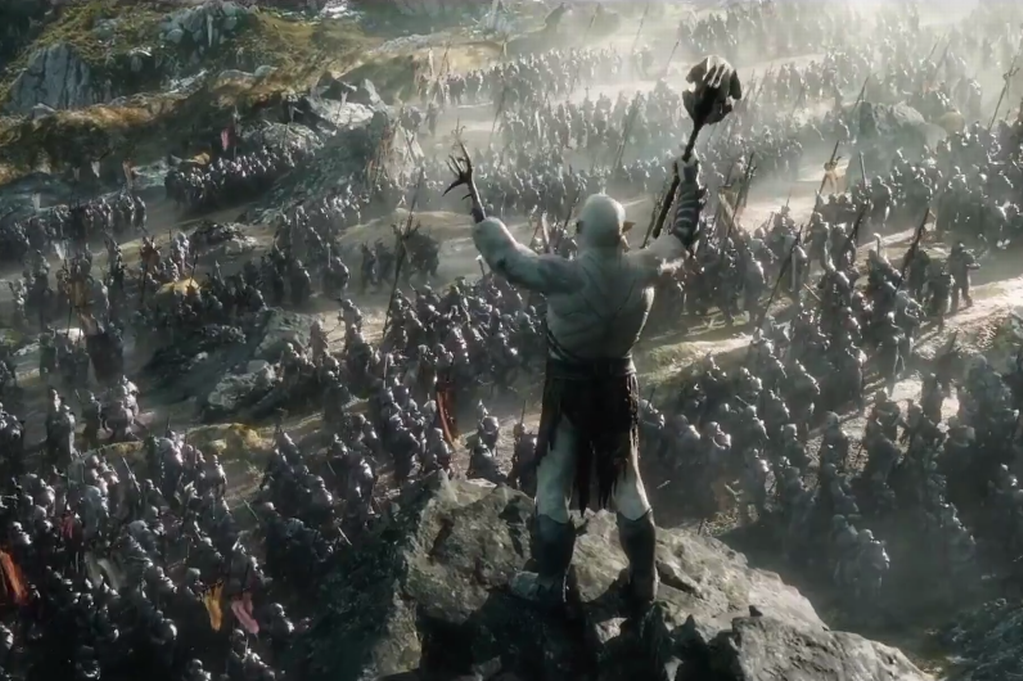One of the few places I would ever like to find myself is locked up in a prison. I am a total wimp and would probably be an even tamer and more limp-wristed version of Andy DuFrane. Not only that, but there is a certain sense of hopelessness and isolation that prison brings that would be absolutely maddening to me. What I thought was so great about Starred Up is how it manages to capture the prison life while not being ridiculously over-dramatic as some prison dramas can and have been (looking at you Oz). You get a feeling that the movie’s story components could have worked outside of the prison milieu, but it is the crushing crucible of prison life that intensifies the grinding drama.
Starred Up, directed by David Mackenzie (Perfect Sense, Young Adam), is the story of Eric Love (Jack O’ Connell), a young, violent and incendiary teen who is transferred to an adult prison in Northern Ireland(the movie title comes from the slang term for that type of prison transfer). It must also be quickly noted that a lot of the dialogue in this movie is slang and very heavy Irish accents. My suggestion would be to watch this movie with the subtitles on, as it can be hard to understand the prisoners and all the slang they use. Upon arriving, Eric’s violent tendencies are on full display in a gruesome sequence on prison violence that leaves Eric already in the sights of the Deputy Governor of the prison (Sam Spruell) and the prisoner powers that be. His only initial saving grace is that his father, Neville (Ben Mendelsohn), also is incarcerated in the same prison and begins lobbying for his protection among the prisoners and the officers in the prison, with whom he has built up years of goodwill and friendship. Eric also attracts the attention of Oliver Baumer (Rupert Friend), a prison counselor that sees Eric’s tender age as a chance for a prisoner to set his life straight and reform his life and have a chance at life on the outside.
This is one of the finer films I have seen in 2014. There is a ton to praise in this movie, but by far the most incredible thing about this movie is the performance of Jack O’ Connell as Eric Love. His performance has tones and echoes of Tom Hardy’s intense and maniacal portrayal of Charlie Bronson in the 2008 movie, Bronson. There is s bone-crunching quality to their more violent moments in both movies that a strike a similar chord. The difference in their performance, and perhaps it is the direction and tone of the movie, is that Hardy’s Bronson was a larger-than-life, almost superhuman type personality and character. O’Connell’s Love is much more tender, much more human, and less of a personal force than a damaged youth with a tough exterior. There is a humanity that is never fully lost, even in the midst of prison fights and shouting matches, to Eric’s character that surfaces in relationships with fellow inmates in Oliver’s group sessions and with the tenuous relationship with his father, Neville.
Mackenzie captures those human and relational elements in some gorgeous and unique shots throughout the film. While prisons are known to be sterile, dark, almost colorless places, the prisoners don’t even wear orange but a dingy grey or denim blue sweats, Mackenzie manages to capture colors that encapsulate important scenes, but most often when the stakes are at their highest throughout the film. He works the camera to capture beautiful images like the sunlight pouring in to Eric’s cell as he works out, and juxtaposes that with a later shot when that sunlight is filtered through a red cloth in his cell during a pivotal violent scene. it is that use of color and camera work (I also call to mind a shot when he spies his buddies through a cracked out glass block as they call to him from the prison yard) that makes the stifling atmosphere of the prison more oxygenated and filled with life and hope.
The hope aspect is the deeper thread that runs through the narrative of the movie. When Eric enters the prison, his immediate needs are met when he makes a shiv, to stay safe, smacks an inmate around to get a lighter, and picks a fight almost immediately on his first day. The prison government finds his status as a “starred up” prisoner to be one fated for solitary confinement and life-long imprisonment as his offenses rack up. It is Oliver and Eric’s father, Neville, that work to try and reform Eric’s behavior and not have him fall into the familiar habits of so many inmates and doom himself to a life behind bars. When Oliver’s time concludes and he carries the burden of Eric as far as it can go (which is captured in a great shot of the prison turn-style) Neville takes measure to ensure that his son does not end up a life-long prisoner, like him. The second-half of the movie focuses in on their close relationship and how a father can do all he can to love the son he was never there for and help him avoid the same life. It is amazing to watch Neville and Oliver, and even Eric’s prison buddies, carry his burdens of anger and hopelessness and work for him to reform his life and temperament and not become what they are and find hope in a place widely considered to be hopeless.
DIRECTED BY: David Mackenzie
STARRING: Jack O’ Connell, Ben Mendelsohn, and Rupert Friend
RATED NR – An insane amount of cursing (uses of the “c” word and “n” word) as well as male nudity and violent content (it is a prison, after all)
Available for rent on Amazon Prime or on iTunes.
Jo sh Crabb is an editor at Reel World Theology, as well as sometimes contributor to the Reel World Theology podcast. You can connect with him on Facebook, Twitter, or on Letterboxd.
sh Crabb is an editor at Reel World Theology, as well as sometimes contributor to the Reel World Theology podcast. You can connect with him on Facebook, Twitter, or on Letterboxd.



